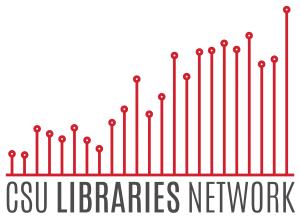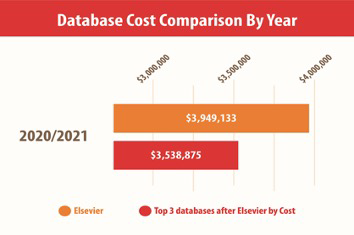Resolution Opposing the U.S. Department of Education’s Proposal to Discontinue IPEDS Annual Libraries Survey
WHEREAS, the Council of Library Deans (COLD) represents the academic interests of the 23 libraries of the California State University system. The California State University system offers educational opportunities to more than 450,000 students and employs a workforce of 63,357 dedicated faculty, staff, and administrators. We are committed to providing all students and faculty equitable access to quality research and information. We provide wide and deep support for the CSU’s curriculum.
WHEREAS, the Council of Library Deans is concerned that the National Center for Education Statistics is recommending the cessation of collecting library statistics in the annual IPEDS academic libraries survey. Without standardized, documented statistics, the value of libraries to the academic enterprise is left to vague and ambiguous interpretation, and may be diminished in the view of academic leaders and elected officials.
WHEREAS, the Integrated Postsecondary Education Data System (IPEDS) library survey stands as a vital instrument, a comprehensive data source on academic libraries, thus empowering informed decision-making and ensuring accountability in higher education;
WHEREAS, academic libraries serve as foundational pillars, in teaching, learning, and research within higher education institutions, promoting access to scholarly materials, expertise, and vital services;
WHEREAS, the IPEDS academic libraries survey fosters benchmarking, comparison, and evaluation of library resources and services, nurturing collaboration and improvement endeavors among institutions, while furnishing crucial data for compliance with accreditation standards;
WHEREAS, the data from the IPEDS academic libraries survey are essential for driving research, guiding policy decisions, and comprehending the nuances and challenges within academic librarianship;
WHEREAS, the transparency and public accountability in higher education thrive on the bedrock of standardized, authoritative dependable data, including library statistics, provided by IPEDS; now, therefore, be it
RESOLVED, that the California State University Council of Library Deans:
1) Strongly opposes any proposal to terminate the IPEDS academic libraries survey, urging the U.S. Department of Education to safeguard and uphold this pivotal element of the data collection framework.
2) Reaffirms its unwavering commitment to championing the continuity of the IPEDS academic libraries survey, acknowledging its paramount significance in fortifying the potency, efficacy, and transparency of academic libraries within institutions of higher education, including its pivotal role in accreditation evaluations.
3) Shall convey this resolution to the U.S. Department of Education’s Institute of Education Sciences, National Center for Education Statistics, and pertinent stakeholders, including educational institutions, library consortia, and associations.
4)This communication endeavors to underscore the imperative preservation of the IPEDS academic libraries survey, recognizing its irreplaceable contributions to the promotion and enhancement of higher education and academic librarianship.
Read More

